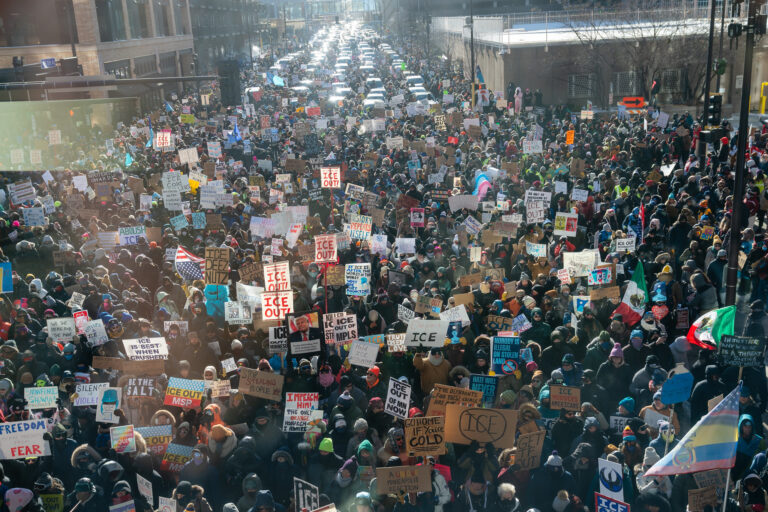Maddy Joseph is a student at Harvard Law School.
An amicus filed on Friday in Janus and based on Ben’s new article Agency Fees and the First Amendment, 131 Harv. L. Rev. 1046 urges the Court to reject Janus’s challenge on the ground that it does not raise a valid First Amendment claim. The amicus argues that mandatory agency fees should be treated not as compelled employee speech but as payments from employers to unions that merely pass-through employee pay checks. As Ben points out in his article, and as the brief argues, payments that flow through an intermediary on their way from an originator to an ultimate recipient are treated — under First Amendment caselaw — as payments from the originator to the recipient, not as payments by the intermediary.
Current agency fee jurisprudence assumes that agency fees are employees’ money that is paid by employees to unions. Although employees do receive funds from their employers earmarked for agency fees, the NLRA and state equivalents allow agreements that require those funds to be paid to the union. Indeed, as the amicus points out, under Illinois’s system, agency fees are diverted to the union before the fees are even deposited in the employee’s account.
First Amendment cases involving pass-through regimes like this attribute payments to the entity that has a “genuine choice” over where the payment is directed. For example, in Zelman v. Simmons-Harris, 536 U.S. 639 (2002), the brief explains, “the government paid tuition subsidies to parents” that eventually went to religious schools, but these payments were not attributed to the government (and thus posed no First Amendment problem) because “the parents were permitted to choose where they spent those subsidies.” On the other hand, where families lack “genuine choice” over where to direct those payments, the fact that payments pass through the families’ hands en route from government to school is constitutionally irrelevant. In those cases, the payments are treated as a “program of direct aid” flowing from the government to the schools.
Following these cases, the amicus argues, agency fees should be attributed not to employees but to the government employer for First Amendment purposes. Although agency fees do pass through employee paychecks en route from employer to union, the employee has no choice but to divert the funds to the union. Instead, the state is the entity with the choice about where agency fee money goes. As a result, the amicus concludes, the Supreme Court’s cases require that agency fees be attributed to the state employer and not to the employee for First Amendment purposes. And payments from a state to a union create no First Amendment problems for employees like Janus.
The brief, authored by Joseph Sellers and Miriam Nemeth (Cohen Millstein Sellers & Toll), is available here. Ben’s article is available here.









Daily News & Commentary
Start your day with our roundup of the latest labor developments. See all
February 27
The Ninth Circuit allows Trump to dismantle certain government unions based on national security concerns; and the DOL set to focus enforcement on firms with “outsized market power.”
February 26
Workplace AI regulations proposed in Michigan; en banc D.C. Circuit hears oral argument in CFPB case; white police officers sue Philadelphia over DEI policy.
February 25
OSHA workplace inspections significantly drop in 2025; the Court denies a petition for certiorari to review a Minnesota law banning mandatory anti-union meetings at work; and the Court declines two petitions to determine whether Air Force service members should receive backpay as a result of religious challenges to the now-revoked COVID-19 vaccine mandate.
February 24
In today’s news and commentary, the NLRB uses the Obama-era Browning-Ferris standard, a fired National Park ranger sues the Department of Interior and the National Park Service, the NLRB closes out Amazon’s labor dispute on Staten Island, and OIRA signals changes to the Biden-era independent contractor rule. The NLRB ruled that Browning-Ferris Industries jointly employed […]
February 23
In today’s news and commentary, the Trump administration proposes a rule limiting employment authorization for asylum seekers and Matt Bruenig introduces a new LLM tool analyzing employer rules under Stericycle. Law360 reports that the Trump administration proposed a rule on Friday that would change the employment authorization process for asylum seekers. Under the proposed rule, […]
February 22
A petition for certiorari in Bivens v. Zep, New York nurses end their historic six-week-strike, and Professor Block argues for just cause protections in New York City.